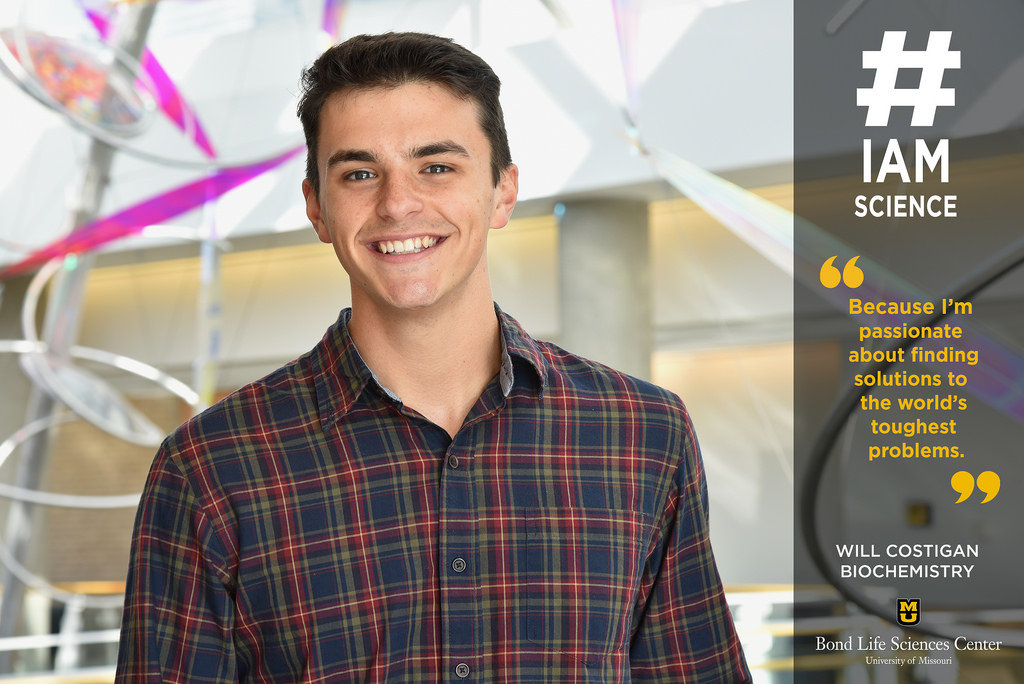Published on
By Erica Overfelt | Bond LSC
When Will Costigan came to MU he knew he wanted to do research, but wasn’t sure what exactly.
Costigan joined Freshman Research in Plant Sciences (FRIPS) the first moment he could his freshman year to explore his research options.
“When I started, I didn’t think I was interested in plants very much,” Costigan said. “But after getting some experience working in the lab, I found that plants are more important and complex than I could’ve imagined.”
So, he started working in Scott Peck’s lab a year ago, earlier than many of his peers.
“A benefit to joining a lab early is that I can apply what I have learned in the lab to things I’m doing in the classroom,” Costigan said. “I have been very fortunate that there is so much carry over from the lab to the classroom, so I better understand certain concepts and techniques.”
Costigan started off like most people who are new to a lab. He cleaned the dishes, cared for the plants and learned the knowledge needed to research. The Peck lab studies how plants adapt to changes in their environment and infections.
“My research focuses on the regulation of pattern triggered immunity” Costigan said. “Pattern triggered immunity is a plant’s first line of defense against bacterial pathogens. It allows a plant to recognize an infection and initiate physiological changes that stop the infection from spreading.”
This research has implication for both crop resistance and food security.
“Crop production is very important to sustaining civilization,” Costigan said. “As the population continues to grow, equipping our crops with tools to fight disease will be necessary to maintain food security.”
Costigan understands he may not be directly helping someone, but the impact is there.
“Helping people face-to-face is very important but research enables you to develop something, whether it’s a new technique or principle, that can help people on a larger scale.” said Costigan. “The possibilities are endless. I would definitely say that helping people on a broad scale is something I am very passionate about. Science is a great way to help others.”
Costigan may only be a sophomore but he plans on getting a Ph. D.
“Science definitely takes critical thinking skills, but it’s also something you have to be passionate about,” Costigan said. “I have used my passion to better understand terms and techniques. It is kind of its own language in its self, learning how to talk about it and live it.”
